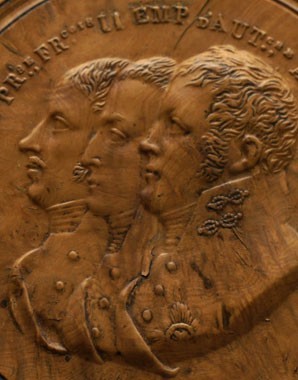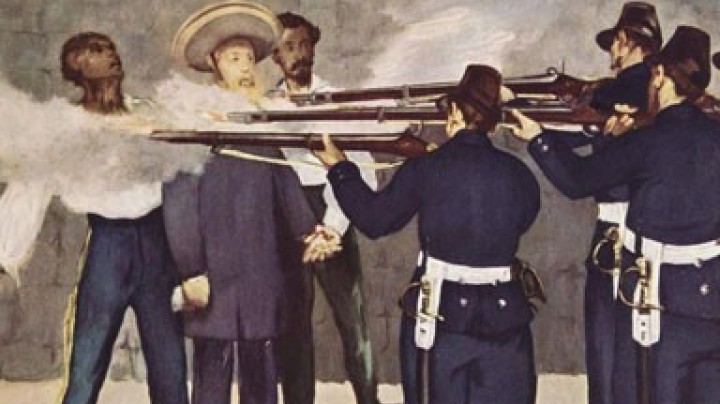A ‘noble’ robber, and no respecter of borders
A large proportion of the rural population at the end of the eighteenth and beginning of the nineteenth century lived in unimaginably impoverished circumstances. The ‘Robber Captain’ Johann Georg Grasel also came from this background.
Notice issued by the Imperial-Royal District Authorities in Krems an der Donau on 7 November 1815Whosoever shall deliver the robber and murderer Johann Georg Grassl … alive to the Criminal Court of the municipal authorities of the capital and imperial residence of Vienna, or to any other criminal court in the land, shall receive, excepting that he is an accomplice of the said individual, a reward of four thousand gulden in Viennese currency.
According to the description provided by a number of his arrested accomplices, Johann Georg Grassl is twenty-two years old, of tall and slender stature, with a long face, more lean than fat, of a healthy complexion, with only a few pockmarks, and with freckles, grey eyes, a long pointed nose bent slightly to the left, the lower lip noticeably more prominent than the upper lip, small white teeth with gaps between, short, dark brown hair, thin eyebrows of the same [colour], and sparse side-whiskers under the chin, a scar below the right ear running straight across the cheek, and the little finger on his right hand crooked and bent inwards.
The Napoleonic Wars intensified the daily struggle for survival of a broad section of the population. Officials made regular appearances in villages to recruit young men as soldiers. The authorities shifted the blame for the enormous social problems onto the people themselves, instead of recognizing that their meagre income was frequently inadequate for survival. Petty theft and begging therefore represented everyday survival strategies for many people.
Johann Georg Grasel came from these marginal groups. Born in 1790 in Neu-Serowitz (today Nové Syrovice in the Czech Republic), he came from a family of flayers: flayers were responsible for the rendering of animal carcasses, an occupation that enjoyed little respect. After beginning with petty theft and burglary, Grasel embarked on his career as a robber around 1809. However, his life did not consist exclusively of robbery and murder: Grasel repeatedly attempted to earn money through honest work. As a robber he crossed back and forth over administrative borders and was active in the Waldviertel and Weinviertel regions (in present-day Lower Austria), and also in southern Bohemia and southern Moravia (in the present-day Czech Republic).
Grasel joined forces with other outlaws, but only for short periods of time, which created the impression that there was a huge band of robbers with him as ‘captain’. He acquired a feared reputation which however far surpassed the actual threat that he posed. With the wars at an end and the Congress of Vienna taking place in the capital, the state was keen to put a stop to this lawlessness. The hunt for Grasel was thus stepped up and a reward was offered for his capture. Emperor Franz II (I) personally authorized an increase in this reward.
In November 1815 Grasel was finally captured at an inn in Mörtersdorf near Horn. In the subsequent trial he was charged principally with one robbery-cum-murder, and he also confessed to many other crimes. In January 1818 the sentence was passed: ‘Death by hanging’. Grasel and his two partners were hanged on 31 January 1816 in front of the Neutor on the glacis. When he saw the large number of spectators Grasel is reported to have said: ‘Jessas, sovül Leit'!’ (‘Jesus, so many people!’)
After his death Grasel, like many other robbers, was transformed into a popular hero: facts from official documents were amalgamated with popular stories and myths. Nowadays in Vienna and Lower Austria – in particular for the tourist market – he is stylized as a ‘noble robber’ and as the ‘Robin Hood of the Waldviertel’. In Czech the phrase ty grázle (you Grasel) is still in use, with the meaning of ‘you crook’ or ‘you rogue’.
















